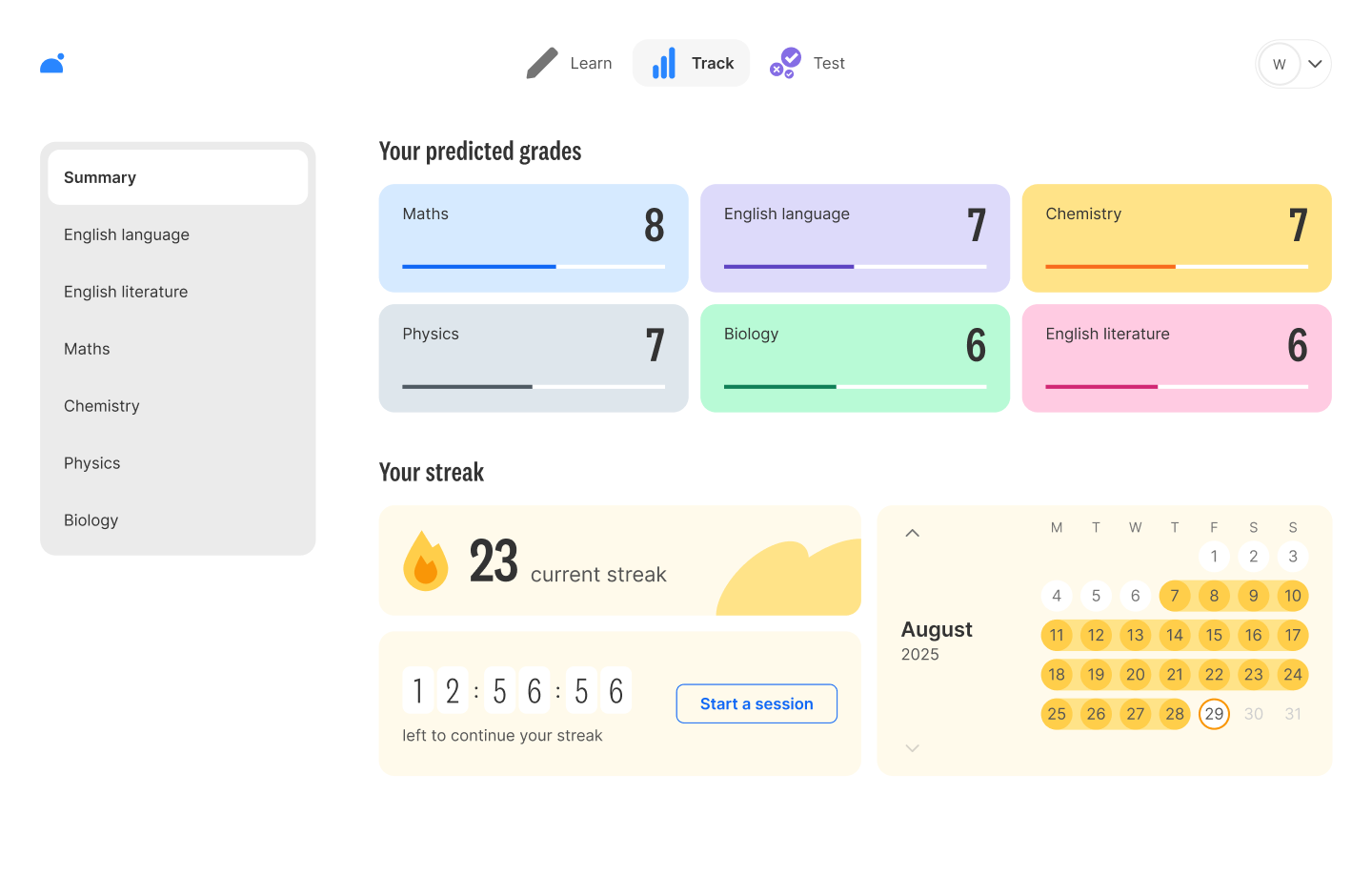How to revise for GCSE mocks effectively

Have you got questions about GCSE mocks? Whether you’re starting to revise or just curious about what to expect, we’re here to help.
Check out this guide to understand what mocks are, why you do them and how to revise effectively. And remember, these revision tips aren’t just for mocks! They can be used for your final GCSE exams and beyond.
What are GCSE mocks?
GCSE mock tests are set by schools to give you the chance to practise taking GCSEs in exam conditions before the real thing.
They’re typically taken at the end of Year 10, and between November and January of Year 11. Your teachers will set the exact dates - make sure you check in with your school to find out more. Take a look at our guide to GCSE exam dates.
Mocks are taken in exam conditions, so you have the chance to practice like it’s the real thing. Your teachers will set the test using relevant past papers and mark them rather than the exam board. Remember, mocks do not impact your final mark.
Download your free GCSE revision planner
Less stress, more success! Get your free GCSE revision planner and our handy guide to effective revision today.
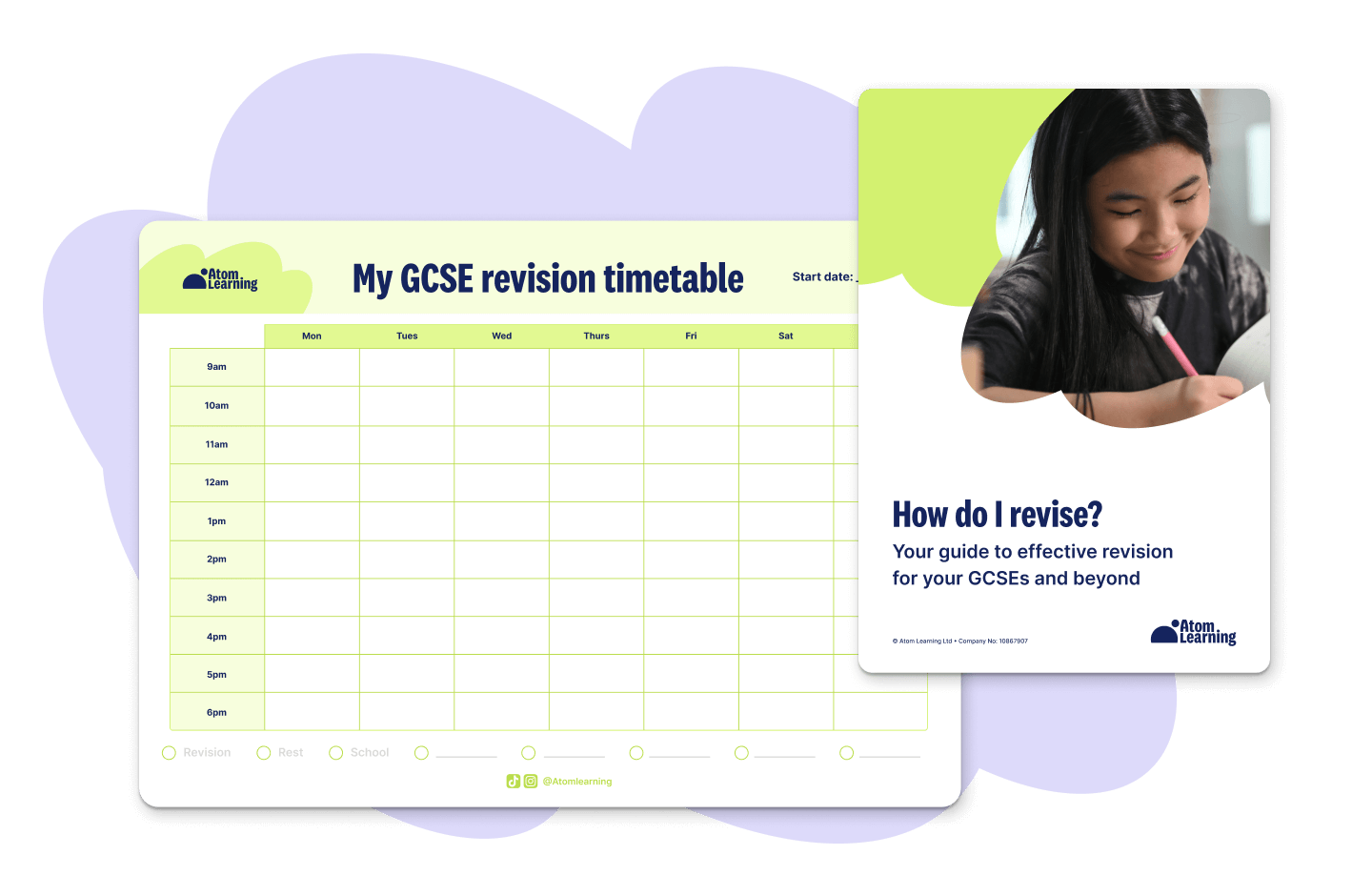
Why do we do mocks?
Doing mocks might not be your favourite activity, but they are useful for a number of reasons:
- Experience test conditions: Mocks are a helpful way for schools to introduce you to test conditions. Getting used to the format of the exams and finishing the questions in the time given is important to help you feel confident and ready for the real thing.
- Practice exam skills: One of the key skills you’ll learn during GCSEs is how to answer exam questions. Understanding the mark schemes and identifying what knowledge or skills you need to demonstrate is really important. Mocks are an opportunity to hone that skill or identify it as something to work on.
- Identify learning gaps: Looking back at your mocks can really help you to identify which subjects, topics or skills you’re good at and which ones need additional work. This will help you make the most out of your final months of learning and revision.
- Practice revision techniques: A common question people ask is, ‘How do I revise?’ With so many techniques out there, it can take time to understand which methods work for you and how to use them effectively. Mocks are a really good time to start testing out different ideas!
- Inform predicted grades: Your mock results will contribute to your predicted grades, along with reviews from your teachers and other factors. These grades are used for applying to next steps, such as sixth form or college, and in case you are unable to sit the actual exams for reasons such as a medical emergency or bereavement.
Do mocks affect my final grade?
No, GCSE mock results are not counted towards your final grades unless needed in an emergency situation. The grade you achieve in the mocks is just to help you and your teachers understand what level you’re currently at and what areas you need to improve on.
Don’t worry if you don’t get the grades you need in mock exams this time around. There’s still time to build knowledge and exam technique in time for May.
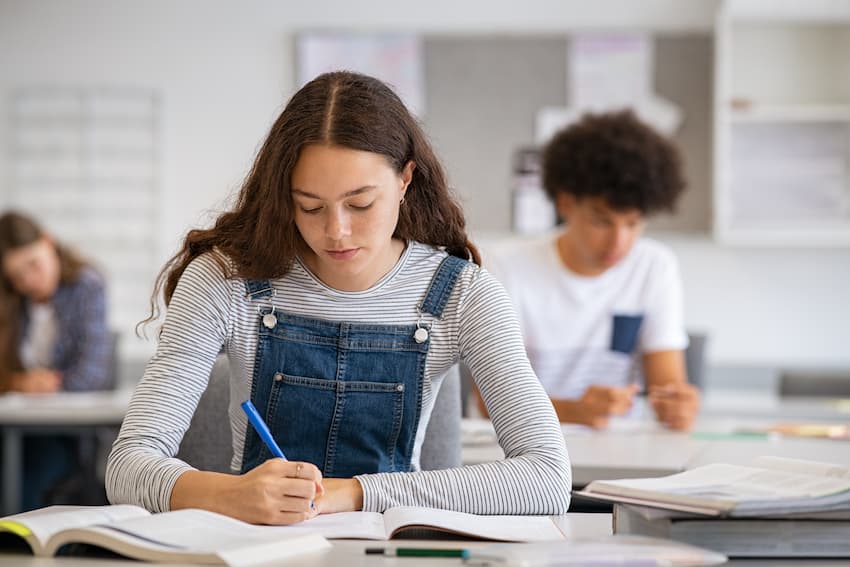
Are mocks harder than GCSEs?
Lots of you might have heard that ‘GCSE mocks are harder than the real thing.’ But in reality, the answer is no!
Mock tests are based on past papers from your relevant exam board and are set by your school teachers. While some teachers may intentionally set challenging papers, there’s no universal rule that says mocks have to be harder than the final exam.
One of the key reasons they may feel harder is that you’ve had less time to learn the curriculum and prepare. With mocks usually happening at the end of the Autumn term or start of the Spring term in Year 11, you’ve still got a whole term of learning, plus revision time, to go before the real thing.
How do I revise for mock tests?
To revise for mocks, you’ll want to start using the same study techniques you’ll use for the final exams. In fact, this is a good time to try different revision techniques and find out what works best for you.
First up, past papers are a game-changer. Available online, you can find previous papers and mark schemes for GCSEs in all the subjects and exam boards you need, including AQA, Edexcel and OCR. Testing yourself by doing actual exam questions, in timed conditions, will help you nail exam technique.
On top of past papers, there’s plenty more revision tactics for you to try. Here are five revision methods we recommend to help you ace those final exams!
Top 5 recommended GCSE revision techniques:
1. Active recall
Active recall is a scientifically proven method to improve your memory. To practise active recall, read your notes on a topic, then test yourself through quizzes, past papers or some of the other methods below. This way, your brain is trained to remember key information, rather than just passively reading it.
2. Blurting
You may have seen blurting on StudyTok and have questions about what it is. Blurting is actually a form of active recall. It’s where you write down everything you know on a topic (or blurt it out!), before checking your notes for gaps. You then revise again, focusing on the gaps in your knowledge and repeat.
3. Flashcards
Another way to practice active recall, flashcards are typically physical or digital cards with a question on one side and an answer on the other. Use them to test your knowledge. You can make revision more fun by using flashcards with friends or asking your family to test you.
4. The Pomodoro technique
The Pomodoro technique helps break studying down into bite-sized chunks. The idea is you study in short 25-minute bursts or ‘pomodoros’ then take a 5-minute break. It’s a good idea to schedule longer breaks if you want to study for a few hours at a time. Using this technique will stop you from getting overwhelmed and is particularly helpful if you have ADHD.
5. Spaced repetition
Spaced repetition is a technique you can use for all of the above revision tips! It’s the practice of doing shorter revision sessions closer together to help you build your memory. Studying topics the same day after school, then one day, three days and a week later can help you solidify your learning.
How can I revise better at home?
If you want to revise better outside of school, try these top tips to help:
- Start a good routine: Set a schedule of short bursts of revision mixed with healthy study habits such as eating well, exercising, and seeing friends to build a good study routine.
- Keep yourself accountable: Revising with a buddy is a great way to hold yourself accountable. Ask your friends or family to sit and work with you - they can even test your knowledge.
- Find the right environment for you: Some people concentrate better at home alone, others prefer to work in a cafe or library. It’s a good idea to try some different places to study. You might find you concentrate better in certain places or with music playing.
- Get organised with a timetable: Laying out your plans in a revision timetable is a great starting point. Break down the time you have left and what you need to study, organising when and how much you will revise.
- Remember to take breaks: Good sleep, fresh air, and frequent breaks are helpful and severely underrated study habits. Ignore the pressure to ‘lock in’ with a 12-hour study session and be kind to yourself. Your body will thank you later!
Studying for GCSE mocks uses the same skills and dedication as revising for the real thing. Remember, mocks are the ideal time to practice technique, identify learning gaps and organise yourself for summer exams.
To revise effectively, start with a good plan and remember to be kind to yourself. You’ve got this!
Take control of your GCSE revision
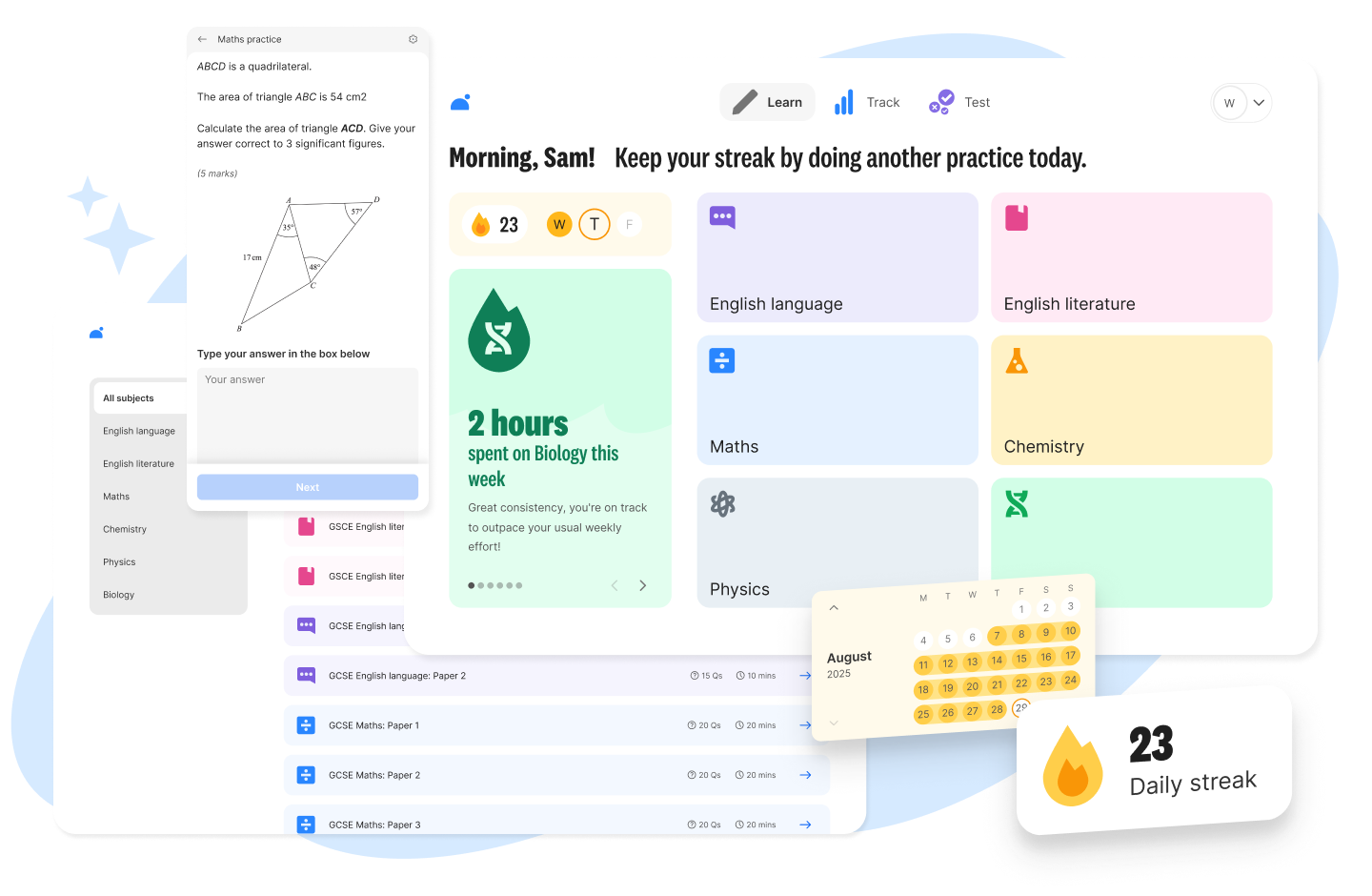
Everything you need for GCSE success, in one place.
Feeling confident about your GCSEs comes from knowing what to revise, how to improve, and where to focus next.
🔮 GCSE practice papers based on our team's 2026 exam predictions
🎓 Guided courses that cover all the topics on your exams
✍️ Instant feedback that tells you where you’ve gained and lost marks
📈 Predicted GCSE grades and topic-by-topic tracking
Create your free account and start making real progress today.
